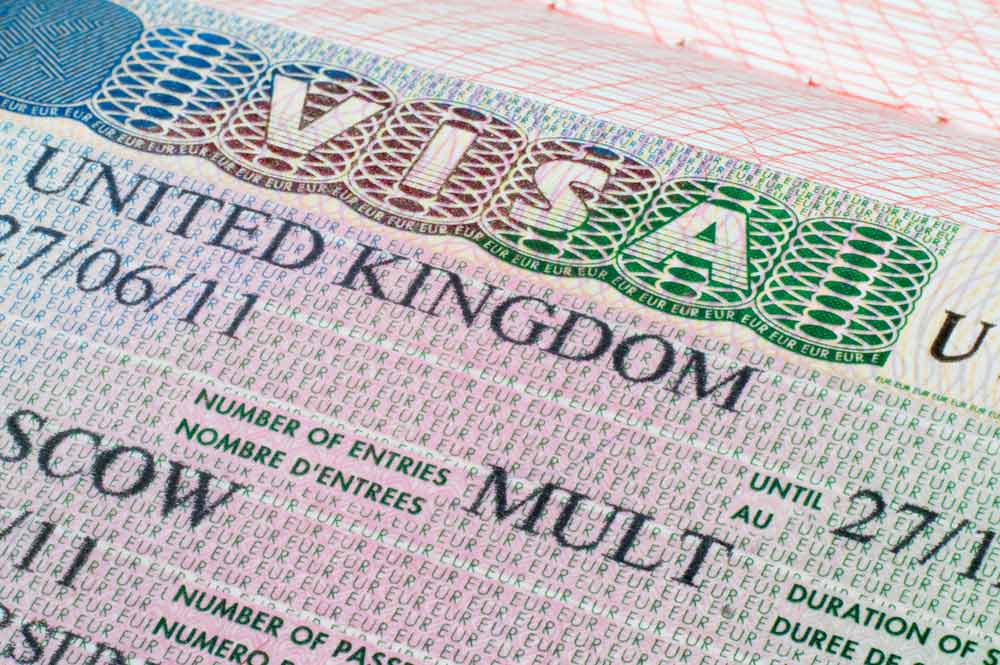Study in UK from Bangladesh for Higher Education

Study in UK from Bangladesh for higher education has long been a dream for many students in Bangladesh seeking quality education and international exposure. With world-renowned universities, diverse cultural experiences, and excellent post-graduation prospects, the UK remains a top destination for higher studies.
Studying in the UK offers a world-class education and compelling reasons to choose it as your study abroad destination. British universities are renowned for their academic excellence, consistently ranking among the top institutions globally. With rigorous academic standards, innovative research opportunities, and esteemed faculty, the UK provides high-quality degree programs across various fields. Whether you aspire to study arts, sciences, business, engineering, or any other discipline, you can find tailored programs to suit your interests and career goals.
The UK’s location and historical significance make it an ideal destination for exploration and discovery. From the iconic streets of London to the breathtaking landscapes of Scotland and Wales, the UK offers a wealth of cultural and historical landmarks to explore during your study breaks. Overall, studying in the UK offers a combination of academic excellence, cultural diversity, and exciting opportunities for personal growth, making it an attractive choice for students seeking a rewarding study abroad experience.
Why Study in UK from Bangladesh for higher education

Academic Excellence
UK universities are globally recognized for their high academic standards and quality of education
Diverse Course Offerings
From traditional subjects to cutting-edge research programs, the UK offers a wide range of courses to suit every interest and career goal.
Cultural Diversity
Studying in the UK provides exposure to diverse cultures, fostering a global perspective and enhancing personal growth.
Career Opportunities
Graduates from UK universities are highly sought after by employers worldwide, offering excellent career prospects.
Research Opportunities
The UK is at the forefront of research and innovation, providing students with ample opportunities to engage in groundbreaking research projects.
UK Student Visa Requirements
Acceptance Letter
Obtain a confirmation of acceptance for studies (CAS) from a recognized UK institution.
Financial Proof
Demonstrate sufficient funds to cover tuition fees, living expenses, and return travel.
English Proficiency
Meet the English language requirements through tests like IELTS or equivalent.
Tuberculosis Test
Some students may need to undergo a tuberculosis test, depending on their country of residence.
Health Insurance
Arrange comprehensive health insurance coverage for the duration of your stay in the UK.
UK Student Visa and Tuition Fees


Tier 4 Visa
Most international students require a Tier 4 (General) student visa to study in the UK for longer than six months.
Application Process
Apply for the Tier 4 visa online, providing all necessary documents and paying the application fee.
Processing Time
Visa processing times vary, but it’s advisable to apply well in advance of your intended start date.
Tuition Fees
Tuition fees vary depending on the university, course, and level of study. On average, International undergraduate tuition fees vary from £11,400 – £38,000, while International postgraduate tuition fees vary from £9,000 – £30,000.
Living Expenses
In addition to tuition fees, students need to budget for accommodation, food, transportation, and other miscellaneous expenses.
UK Study Visa Documents List
- Valid Passport
- Confirmation of Acceptance for Studies (CAS) from a UK institution
- Financial Documents (bank statements, sponsorship letter, scholarship award letter)
- English Language Proficiency Certificate (IELTS, TOEFL, etc.)
- Tuberculosis Test Results (if applicable)
- a valid ATAS certificate if your course and nationality require it
- Academic Certificates and Transcripts
- Passport-size Photographs
- Proof of parental or other legal guardian consent if you’re under 18
- Proof of your relationship to your parent or guardian if you’re under 18
- Health Insurance Documents
- Written consent for your application from your financial sponsor if you’ve received sponsorship for your course fees and living costs in the last 12 months
- Visa Application Form (online)

Available Scholarships to Study in the UK

Commonwealth Scholarships:
Fully-funded scholarships for students from Commonwealth countries, including Bangladesh, to pursue Master’s and Ph.D. programs in the UK.
Chevening Scholarships
Prestigious scholarships funded by the UK government, covering tuition fees, living expenses, and other allowances for one year Master’s degree programs.
British Council Scholarships
Various scholarships and funding opportunities offered by the British Council for Bangladeshi students to study in the UK.
University Scholarships
Many UK universities offer scholarships and financial aid to international students based on academic merit, leadership potential, and other criteria.
External Funding
Explore external funding sources such as non-profit organisations, foundations, and corporate sponsorships for additional financial support.
Study in UK from Bangladesh without IELTS
English Language Proficiency Alternatives
Some UK universities accept alternative English language proficiency tests such as TOEFL, Pearson Test of English (PTE),Oxford International English Test (OIETC), Duolingo or Cambridge English Qualifications.
Foundation Courses
Enrol in foundation courses or pre-sessional English language programs offered by UK universities to improve language skills and meet admission requirements.
English Medium Education
Students who have completed their previous education in English medium institutions may be exempt from providing additional English language proficiency tests.
Conditional Offers
Some universities may issue conditional offers based on the student’s commitment to improving their English language skills upon arrival in the UK.
Career after Graduation

Post-Study Work Permit / Visa
The UK offers a two-year post-study work visa for international students graduating from UK universities, allowing them to work or seek employment opportunities in the UK.
Global Job Market
A UK degree enhances your employability globally, opening doors to diverse career opportunities in various industries and sectors.
Networking Opportunities
Studying in the UK provides access to a vast network of alumni, professionals, and industry experts, facilitating career growth and advancement.
Further Education
Pursue higher education or specialised courses in the UK or other countries to deepen your knowledge and expertise in your field of study.
Entrepreneurship
The UK offers a conducive environment for entrepreneurship and innovation, allowing graduates to start their own businesses or venture into startups.
Studying in the UK from Bangladesh offers a transformative educational experience, shaping future leaders and professionals in diverse fields. With comprehensive information on visa requirements, tuition fees, scholarships, and career prospects, aspiring students can make informed decisions about pursuing higher studies in the UK.
For personalised guidance and support throughout the application process, BD Expert Education Consultancy stands as the premier choice for study abroad assistance from Bangladesh.With our team of experienced counsellors and advisors, we provide personalised guidance and support at every step of the application process. From selecting the right course and university to preparing visa documents and securing scholarships, we ensure a smooth and hassle-free experience for our clients. With our extensive network of partner universities and institutions in the UK and beyond, we help students fulfil their dreams of studying abroad and achieving academic excellence. Contact us today to embark on your journey to success with BD Expert Education Consultancy.
Want To Study Abroad?
Know More Details
FAQ Related to Study In UK
Pursuing a master’s degree in the UK offers numerous benefits, enhancing both your technical skills and your CV.
As a student with an undergraduate degree, it is advisable to seek institutions that prioritize practical knowledge, hands-on experience, and job preparation. UK universities and colleges follow a research-based learning approach, allowing you to apply classroom concepts in real-world situations.
In the UK, postgraduate courses can be categorized into two types: taught and research. Taught master’s degrees, such as MA or M.Sc., typically last for 12 months (full-time) or 24 months (part-time). On the other hand, research master’s programs, often offering M.Phil. degrees, are more intensive and can take 18 to 36 months to complete.
To select your field of study, start by reflecting on the subjects you found interesting during your undergraduate studies. Create a list of your preferences and narrow down your chosen specialization. Then, explore the programs and universities that offer courses in your desired field. It is important to consider language or aptitude tests that may be required for admission to British institutions, and also take into account your academic scores. Stay informed about the available intakes for your preferred courses and plan your application accordingly.
For personalized guidance in finding the right university or college where you can thrive, our experienced counselors at IDP are here to assist you. Visit your nearest IDP office for free advice and support throughout your journey of pursuing postgraduate studies in the UK.
To study in the UK, international students must meet certain entry requirements. The specific requirements may vary depending on the level of study (undergraduate or postgraduate) and the university or college chosen. Generally, here are the key criteria:
Academic Qualifications: Students need to have completed their secondary education or its equivalent, such as A-levels, International Baccalaureate (IB), or other recognized qualifications, depending on the program they wish to pursue. Some universities may require specific grades or subjects for certain courses.
English Language Proficiency: Proficiency in the English language is essential. Most institutions require international students to demonstrate their English language skills by taking standardized tests like the IELTS, MOI, PTE, OIETC exam. Minimum score requirements vary by institution and program, but a higher score is usually required for more competitive courses.
Additionally, students may need to fulfill additional requirements such as submitting a personal statement, providing reference letters, and completing an interview or entrance exam for specific programs. It is crucial to check with individual universities or the official UK government website for the most up-to-date and accurate information regarding entry requirements, as they can vary between institutions and change over time.
The English language proficiency requirements to study in the UK vary depending on the university and program you are applying to. The most commonly accepted English language tests are the International English Language Testing System (IELTS), MOI, PTE and OIETC exam.
During term-time, you are generally allowed to work up to 20 hours per week. This includes both paid employment and unpaid
Yes, there are scholarships and financial aid options available for students who want to study in the UK. Here are some key points to consider:
-
University Scholarships: Many UK universities offer scholarships specifically for international students. You get up to 40% scholarship to study in UK. These scholarships can be merit-based, need-based, or a combination of both. Each university may have its own set of scholarships with different eligibility criteria, application processes, and deadlines. It is advisable to visit the official websites of the universities you are interested in to explore the available scholarship opportunities.
-
Government Scholarships: The UK government and various organizations provide scholarships for international students. The most well-known scholarship program is the Chevening Scholarship, which is funded by the UK Foreign and Commonwealth Office and supports outstanding individuals to pursue postgraduate studies in the UK. Additionally, there are other government-funded scholarships available from specific countries or regions.
-
External Scholarships: There are external organizations, foundations, and trusts that offer scholarships to international students studying in the UK. These scholarships may be discipline-specific or based on other criteria. Research and explore options that may be available to you in your home country or through international scholarship databases.
-
Financial Aid: Some universities and colleges provide financial aid packages or bursaries to support students who have financial need. These can help with tuition fees or living expenses. It’s important to check with individual institutions about their financial aid offerings and any specific requirements or deadlines.
-
Research Funding: If you are pursuing research-based programs, such as a Ph.D., there are funding opportunities available through research grants, assistantships, or collaborations with industry partners. Speak to potential supervisors or research departments within universities to inquire about research funding possibilities.
In the UK, there are several accommodation options available to students. These options include university or college halls of residence, private rented accommodation, homestays, and shared houses or flats. University or college halls of residence are usually located on or near campus and offer a range of room types, from shared dormitories to self-contained flats. Private rented accommodation includes apartments, houses, or student-specific residences available from private landlords or specialized student housing providers. Homestays involve living with a local host family, offering a cultural immersion experience. Shared houses or flats involve renting a room within a shared property with other students. The choice of accommodation will depend on personal preferences, budget, location, and the availability of options in the desired city or town.
Yes, there are restrictions on working hours for international students studying in the UK. Generally, international students on a Tier 4 (General) student visa are allowed to work part-time during term-time and full-time during holidays. During term-time, students are usually permitted to work up to 20 hours per week. It’s important to note that these restrictions are in place to ensure that students can balance their work and studies effectively. It’s also crucial to comply with the visa regulations and not exceed the permitted working hours, as it could jeopardize your immigration status in the UK.
Yes, it is possible to bring your spouse or family with you while studying in the UK, but it depends on the specific circumstances and visa category. If you are enrolled in a full-time postgraduate program lasting 9 months or longer or you are a government-sponsored student on a program lasting longer than 6 months, you may be eligible to bring your spouse or partner and children as dependents. You will need to provide evidence of your relationship, financial support, and suitable accommodation. They will need to apply for a dependent visa, and additional fees and requirements will apply. It is important to check the specific immigration rules and requirements provided by the UK government or consult with the university’s international student services for accurate and up-to-date information regarding bringing your spouse or family with you.
Yes, UK qualifications are generally recognized and highly regarded worldwide. The UK has a long-standing reputation for providing high-quality education, and its universities consistently rank among the top in the world. UK qualifications, such as degrees, diplomas, and certifications, are widely accepted and respected by employers, educational institutions, and professional bodies globally. UK universities and colleges maintain rigorous academic standards and often have strong international connections and collaborations, further enhancing the recognition and value of UK qualifications. However, it is always advisable to check specific requirements or recognition criteria with employers, universities, or professional bodies in the respective country or region to ensure the recognition of UK qualifications in a particular context.
Don't take our word for it
See What Our Students Say

Md. Shahadat Hossain
MSc. In Management, BPP University, UKThanks for making my dreams come true. A worthy place that I would highly recommend for any kind of education consultation. May Allah bless them.

Mrs. Rabeya Wazed
Masters in INT'L MBA, University of Wolverhampton, UKGreat service of BD Expert Education and becoming possible for me to achieve my destination of higher education in UK. Thanks to BD Expert Education for supportive co-operation with us.

K M Kamrul Huda
Bd expert education is one of the most reliable agencies i have ever faced.The agents who are working there are the most supportive human beings.I will always recommend everyone who are dreaming to go outside should go there because they are too good with all the cases.

Usha Rani Paul
MSc in International Business, Ulster University, UKI would say BD Expert is a very trustworthy agency. They are cordially helpful to make our dreams come true. I highly recommend the students to come hear and achieve their dream.
